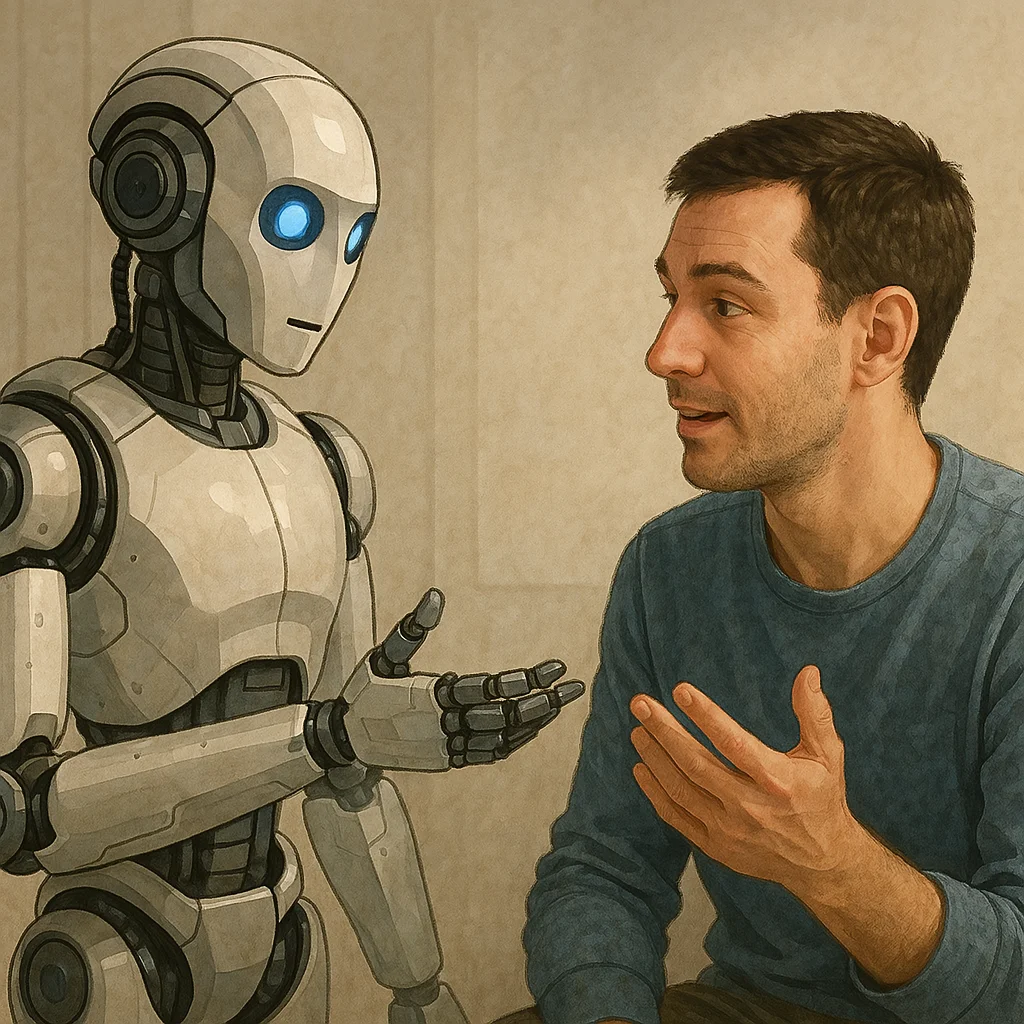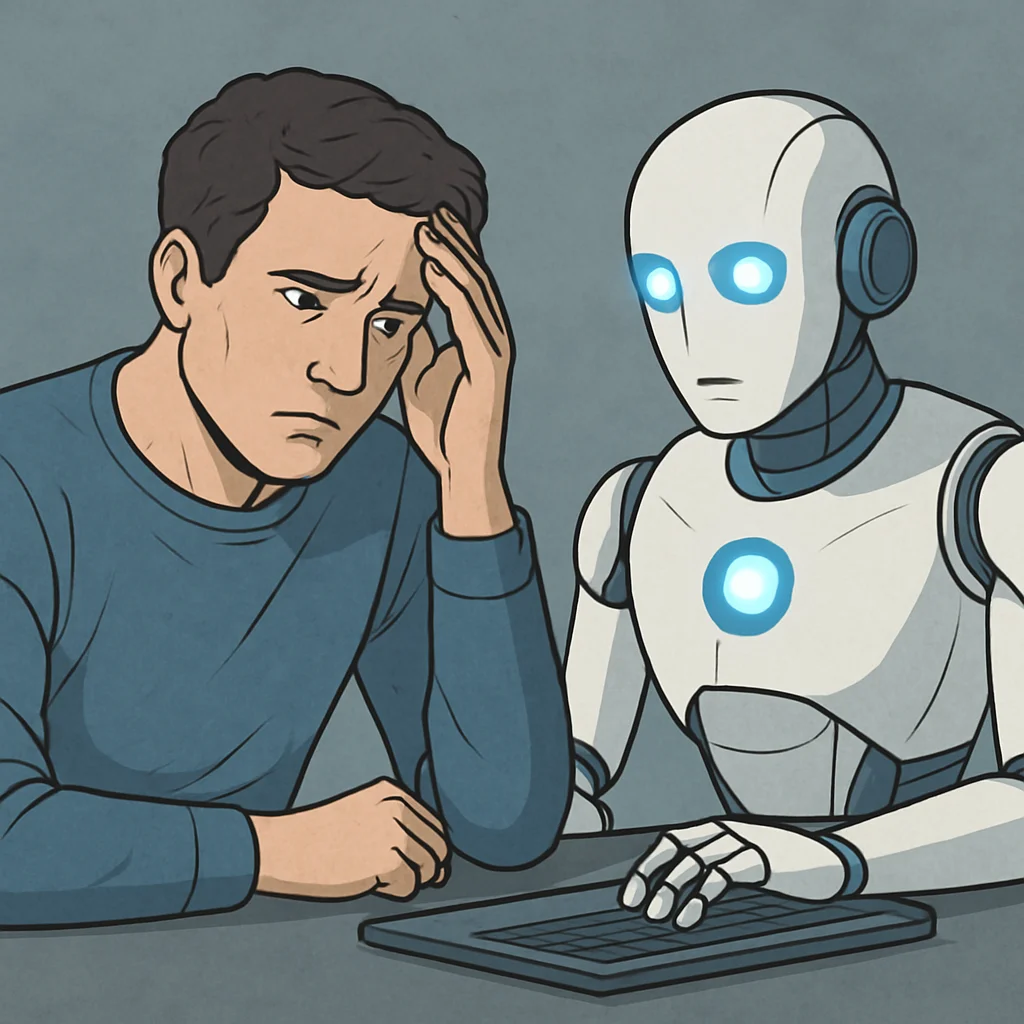Does The Bible Say Anything About AI: 5 Biblical Truths That Answer
Artificial Intelligence (AI) is rapidly changing the world. From smart assistants to self-driving cars, AI is everywhere. But as this technology grows, many Christians wonder: Does the Bible say anything about AI? While the Bible doesn’t mention AI by name, it offers timeless wisdom that can guide our understanding and response.
In this post, we’ll explore biblical perspectives, ethical considerations, and theological insights to answer the question: Does the Bible say anything about AI?
Quick Answer: Does the Bible Say Anything About AI?
No, the Bible does not directly mention AI. However, it offers timeless principles about human creativity, the responsible use of knowledge, and ethical decision-making that help guide a Christian response to AI today.
Table of Contents
What Is AI and Why Does It Matter for Christians?
Before diving into the Bible, it’s important to understand what AI is and why it matters in a faith context.
- AI (Artificial Intelligence) refers to machines or systems that can perform tasks that typically require human intelligence.
- Common examples include chatbots, facial recognition, automation, and smart assistants like Siri or Alexa.
- As AI advances, ethical concerns grow — such as job loss, surveillance, and decision-making without human input.
- Christians are asking: Should we embrace or be cautious of AI?

Does the Bible Say Anything About AI?
While the Bible doesn’t mention artificial intelligence directly, it speaks about topics that relate to technology, knowledge, and creation.
- The term “AI” (artificial intelligence) is not found in Scripture.
- However, biblical principles can help us evaluate AI and its role in our lives.
- The Bible addresses human wisdom, invention, and the use of knowledge — all relevant to AI.
- Scripture often warns about pride in human creation without acknowledging God.
- Christians are called to use discernment when dealing with any human advancement.
Understanding AI from a Biblical Perspective
AI mimics human intelligence through programming, but it is still man-made. The Bible makes a clear distinction between man (created by God) and anything man creates.
- Humans are made in the image of God (Genesis 1:27).
- AI is not created in God’s image — it lacks a soul, moral responsibility, and spiritual awareness.
- Only humans are given spiritual authority, emotions, and free will.
- AI processes data; it does not have consciousness or true understanding.
- The Bible values wisdom that comes from God, not just knowledge (James 3:17).
Bible Verses That Can Be Applied to AI
While no verse talks about AI specifically, several Scriptures relate to the themes of knowledge, creation, and human uniqueness.
- Genesis 1:28 – “Subdue the earth and have dominion…”
- Suggests humans are responsible for creation, including technology.
- Proverbs 3:5-6 – “Trust in the Lord with all your heart…”
- Encourages seeking God over trusting in human inventions.
- Daniel 12:4 – “…knowledge shall increase.”
- Could be seen as a reference to modern advancements.
- Romans 1:22-23 – “Professing themselves to be wise, they became fools…”
- A warning about human pride in knowledge.
- James 1:5 – “If any of you lacks wisdom, let him ask of God…”
- Emphasizes divine wisdom over artificial intelligence.
Ethical Concerns: What Would the Bible Say About AI?
Modern AI raises questions about ethics, control, and responsibility. The Bible provides moral principles that help guide these concerns.
- Justice – Treat all people fairly, even when using AI in hiring, policing, or surveillance.
- Stewardship – Use AI responsibly, not for harmful purposes.
- Accountability – Humans must remain responsible for decisions made by AI.
- Value of life – AI should never be used to devalue or replace human dignity.
- Caution with power – Like the Tower of Babel (Genesis 11), unchecked ambition can lead to dangerous outcomes.
Can AI Replace Human Roles According to the Bible?
AI can assist humans but cannot replace the God-given role and value of human beings.
- Work – God gave humans work as a purposeful activity (Genesis 2:15).
- Relationships – AI can’t form real emotional or spiritual connections.
- Moral judgment – Only humans are equipped to make ethical and spiritual decisions.
- Service to others – The Bible calls us to love and serve — something AI can’t truly do.
- Evangelism and discipleship – Only humans can share the Gospel and make disciples.

Can AI Have a Soul or Spirit According to the Bible?
A key theological question is whether machines can possess consciousness or a soul.
- The Bible teaches that only humans have a God-given soul and spirit (Genesis 2:7).
- Animals and machines are not spiritual beings.
- Only humans are made in the image of God (Imago Dei).
- AI may appear intelligent, but it lacks the divine breath of life.
- Consciousness and morality are spiritual qualities, not programmable ones.
Technology vs. Trust in God
Technology, including AI, is not evil in itself — it depends on how it is used. Christians are called to trust in God above all else, not in machines.
- The Bible calls us to seek first the Kingdom of God (Matthew 6:33).
- Our hope, identity, and purpose must remain in Christ, not in human creations.
- Use AI as a tool, not a master.
How Should Christians Respond to AI?
The question “Does the Bible say anything about AI?” can be answered by looking at the values and teachings God has given us. Christians should approach AI with wisdom, caution, and faith.
- Use AI as a tool, not a replacement for human relationships or God’s role.
- Stay grounded in biblical truth, not just technological trends.
- Promote ethical practices in technology and innovation.
- Teach younger generations to use technology wisely and responsibly.
- Pray for wisdom and discernment as AI continues to develop.
Conclusion
Does The Bible Say Anything About AI? While the Bible doesn’t directly talk about AI, it offers clear principles that help us understand how to approach it. As Christians, we must use discernment, wisdom, and uphold God’s values — even in the age of artificial intelligence.





